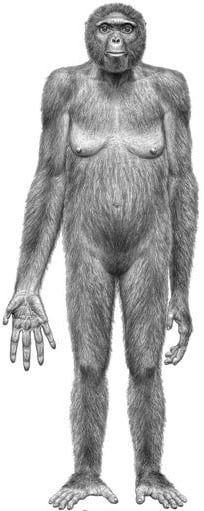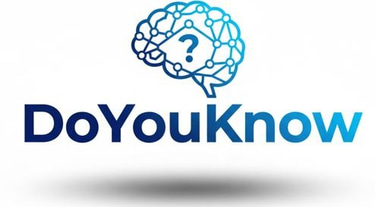Do You Know Who the First Humans Were
The story of the first humans is one of science, evolution, and mystery. From ancient ancestors in Africa to the rise of Homo sapiens, discover how humanity began and who the first humans really were.
KNOWLEDGE & EDUCATION
Do You Know Team
7/20/20254 min read


Have you ever wondered who the first humans were and how we came to exist? For centuries, myths and legends tried to answer this question. Ancient cultures spoke of gods creating humans, while others told stories of humans emerging from the earth itself. But science, through evolutionary biology and archaeology, provides a clearer explanation of our beginnings. The first humans did not appear suddenly. Instead, they were the result of a long evolutionary journey over millions of years. Our species, Homo sapiens, is just one branch of a vast human family tree that included cousins like Neanderthals and Homo erectus. To understand who the first humans were, we must look back into deep time and explore the fascinating story of our origins.
1. The Earliest Human Ancestors
Human history begins in Africa about 6–7 million years ago.
The earliest known ancestor is Sahelanthropus tchadensis, discovered in Chad.
These creatures walked upright sometimes but still had ape-like features.
They weren’t “humans” as we know them but the starting point of our lineage.
2. The Rise of Australopithecus
About 4 million years ago, Australopithecus appeared in Africa.
The famous fossil “Lucy” (3.2 million years old) belongs to this group.
They walked upright more consistently, used simple tools, and had smaller brains compared to modern humans.
Australopithecus was a key stepping stone toward humanity.
3. The Emergence of Homo Habilis – The First “Human”
Around 2.4 million years ago, Homo habilis emerged.
Known as the “handy man,” they were the first humans to use stone tools effectively.
Their brains were larger than earlier ancestors, and they could adapt better to their environment.
Many scientists consider Homo habilis the first true human species.
4. Homo Erectus – The Traveler and Fire-Master
Homo erectus appeared about 1.9 million years ago.
They were the first humans to leave Africa, spreading into Asia and Europe.
They used fire for cooking and protection, built shelters, and developed more advanced tools.
Homo erectus survived for nearly 2 million years, making them one of the longest-living human species.
5. The Neanderthals – Our Closest Cousins
Neanderthals lived in Europe and Asia between 400,000 – 40,000 years ago.
They were skilled hunters, created art, and buried their dead with rituals.
DNA evidence shows that modern humans interbred with Neanderthals, and many of us carry a small percentage of Neanderthal genes today.
They were not primitive “cavemen” but intelligent humans in their own right.
6. The Birth of Homo Sapiens – Modern Humans
Our species, Homo sapiens, appeared in Africa about 300,000 years ago.
With larger brains, complex languages, and creativity, they developed art, music, and advanced tools.
Around 60,000 years ago, they began migrating out of Africa, replacing or interbreeding with other human species.
We are the only surviving branch of the human family tree.
7. The Role of Evolution and Survival
What made Homo sapiens different was their ability to adapt and cooperate.
Social groups, planning, and shared knowledge gave them survival advantages.
Unlike other species, humans developed abstract thinking and storytelling, which helped build cultures.
Cooperation became the secret to human success.
8. How Scientists Know About the First Humans
Fossil evidence from Africa, like skulls and bones, reveals how humans evolved.
DNA studies help trace our genetic history back to early ancestors.
Tools, cave paintings, and burial sites give insight into how early humans lived.
Every discovery is like a puzzle piece in the story of our origin.
9. Myths vs. Science
Many cultures have creation myths:
In Hinduism, the god Brahma is said to have created the first man, Manu.
In Christianity, Adam and Eve are considered the first humans.
While myths provide cultural meaning, science shows that humanity has deep evolutionary roots millions of years old.
Both perspectives shape how societies understand human beginnings.
10. What Makes Us Human Today?
The journey of evolution created a unique species with language, imagination, and technology.
Unlike earlier humans, we can record history, build civilizations, and even explore space.
From Homo habilis to Homo sapiens, humanity’s story is one of constant growth.
We are not just the “first humans”—we are the latest chapter in a long evolutionary story.
FAQs
Q1: Who were the very first humans?
A: The first species considered “human” is Homo habilis, which lived about 2.4 million years ago in Africa.
Q2: Where did humans originate?
A: All evidence points to Africa as the birthplace of humanity.
Q3: Are humans related to apes?
A: Yes, humans and apes share a common ancestor that lived around 6–7 million years ago.
Q4: Did humans live alongside other human species?
A: Yes, Homo sapiens lived at the same time as Neanderthals and Denisovans, and even interbred with them.
Q5: Why did other human species go extinct?
A: Likely due to climate changes, competition for resources, and the superior adaptability of Homo sapiens.
Conclusion
The story of the first humans is not about a single person but about a long evolutionary journey. From ape-like ancestors millions of years ago to tool-making Homo habilis, adventurous Homo erectus, and artistic Neanderthals, humanity has many roots. Our species, Homo sapiens, is the latest result of this journey, carrying within us the DNA and legacy of those who came before. Understanding who the first humans were helps us appreciate our shared history, reminding us that all humans today belong to one big global family that started in Africa. The first humans may be long gone, but their story lives on—inside us.
#DoYouKnow #FirstHumans #HumanEvolution #HistoryOfMankind #OriginsOfHumans #Anthropology #HumanStory
Knowledge
Empowering minds with reliable educational content daily.
Newsletter Signup
© 2025 DoYouKnow. All rights reserved.
Stay Ahead of the Trends – Join Our Newsletter
